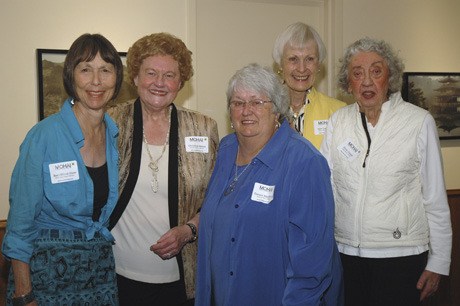2010 marks the 100th anniversary of Washington state women gaining the right to vote, a decade before an amendment to the Constitution extended the national franchise to all women. To honor this achievement, the Museum of History and Industry (MOHAI) is hosting the exhibition “Women’s Votes, Women’s Voices,” which explores the history of women’s civil rights in Washington state and the contributions that political women have made to local communities.
As a part of this celebration, MOHAI is presenting an oral history project entitled “Eastside Political Women.” This project documents the experiences and perceptions of six pioneering Council members and mayors of Kent, Mercer Island, Bellevue, Redmond and Kirkland in the 1970s and 1980s. The women include Betty Bland Winn, of Mercer Island, Nan Campbell, Doris Cooper, Christine Himes, Isabel Hogan and Doreen Marchione.
On Thursday, Aug. 5, MOHAI honored these women at a reception at the museum. Representatives of various women’s organizations, including the American Association of University Women and the League of Women voters, joined family and friends to recognize the achievements of these women. Each mayor recorded a lengthy digital video oral history interview — all of which are transcribed and available to the public. A set of podcasts are available on MOHAI’s Web site.
Although each mayor had different experiences and fought for a variety of issues, these interviews highlight a series of similarities among these women. When they began their political careers, each woman was motivated by concern about a trigger issue: parks, the environment, social services or city growth management. As they began, these women were all homemakers and volunteers who shared the qualities of confidence, vitality, common sense and a sense of humor. As they grew politically, they learned how to compromise, accept responsibility and take criticism. They all learned the art of political success, and each one of them perceived the personal as political and the local as regional. Their oral history interviews document these perceptions.
For a link to the podcasts and more regarding “Women’s Votes, Women’s Voices,” go to the MOHAI exhibition.


